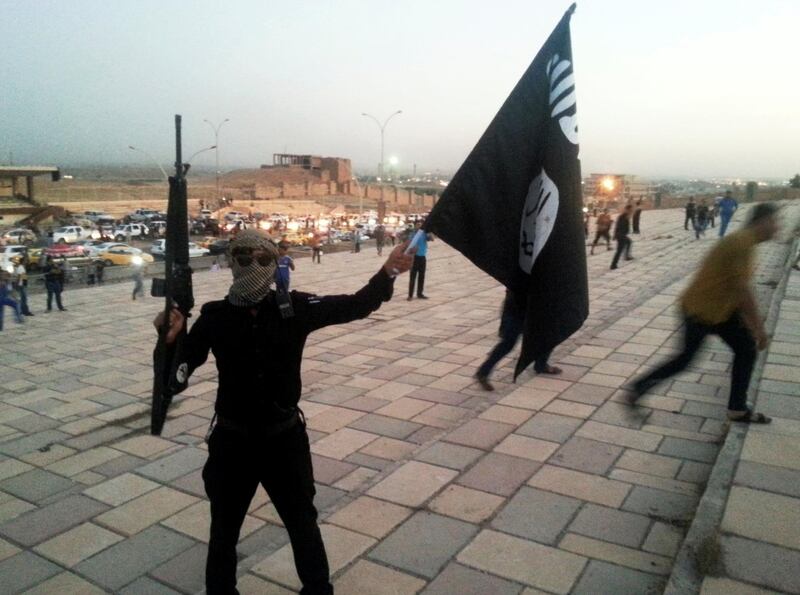The US Department of Treasury imposed sanctions on Wednesday against an Iraq-based financial exchange company suspected of having ties to ISIS.
Afaq Dubai, located in Iraq, was added to the Treasury's list of of specially designated global terrorists for "assisting in, sponsoring or providing financial, material or technical support" for ISIS. The exchange does not have any branches in the UAE.
"It is a part of ISIS’s complex network of money services businesses and financial facilitators funding terrorism across the Middle East," Sigal Mandelker, the Treasury Under Secretary for Terrorism and Financial Intelligence, said in a statement.
Washington is targeting this network along with the Department of Defense as part of President Donald Trump's ongoing campaign to cut off the group's ability to launder money and move illicit funds, Ms Mandelker said.
"Even as ISIS’s hold on territory is eliminated, we will continue to search for and shut down the illicit financial networks ISIS utilises to fund terror attacks and sustain operations," she said.
Afaq Dubai is run by two ISIS financiers, and, as of early 2018, laundered money for the group and provided money to their families, the Treasury said.
The development follows a Pentagon decision on October 11 to target a financial group supporting ISIS. In September the department took action against the terror group's financial facilitators that have ties in the Caribbean and the Middle East.
It comes as the US is leading an ongoing anti-ISIS operation in Iraq and Syria, which has liberated nearly all of the territory that the group once controlled.
Although Baghdad declared victory over the insurgents in December, its fighters have since waged a campaign of kidnapping and killings around the country.
General Joseph Dunford, Chairman of the Joint Chiefs of Staff, said on Tuesday that the condition that gave rise for terrorists still lingers in the country.
“Little progress has been made in addressing the underlying conditions that lead to violent extremism,” General Dunford said.
“Challenges remain in our political, our military, our intelligence, and our law enforcement cooperation despite the fact that we’ve had some positive trends and cooperation; clearly there is much more to be done,” he said,
Last week, the Joint Task Force of the US coalition and Iraqi Special Forces arrested 10 suspected ISIS members who provide funding to the insurgents in Baghdad and the northern city of Erbil.
“The arrests deal a major blow to ISIS’s capacity to threaten and terrorise civilians,” said Major General Patrick Roberson, commander of Operation Inherent Resolve.
Raids were carried out from October 7 for two days, leading to the arrest of the suspected members of the Al Raqi network, which operates as as a “financial facilitation group” for the militants, the coalition said in a statement.
“This demonstrates that those who assist in, sponsor, or provide financial, material or technological support to ISIS will face severe consequences," Major General Roberson said.
Meanwhile, Iraqi President Barham Salih condemned foreign interference in the country.
Mr Salih called on the international community to not "burden" Iraq with regional tensions, adding that the country is pivotal to the region's stability.
Speaking to ambassadors from neighbouring states, the president stressed the need to develop constructive relations "in a way that serves the common interests of their citizens".
"The country is entering a new stage as it tries to form a strong and sufficient government," he said.
_________
Read more:
Beyond the Headlines podcast: Is Iraq prepared for an ISIS resurgence?
How eliminating the ‘kill box’ turned Mosul into a meat-grinder
Iraqis are living among a hidden arsenal that could explode
________





